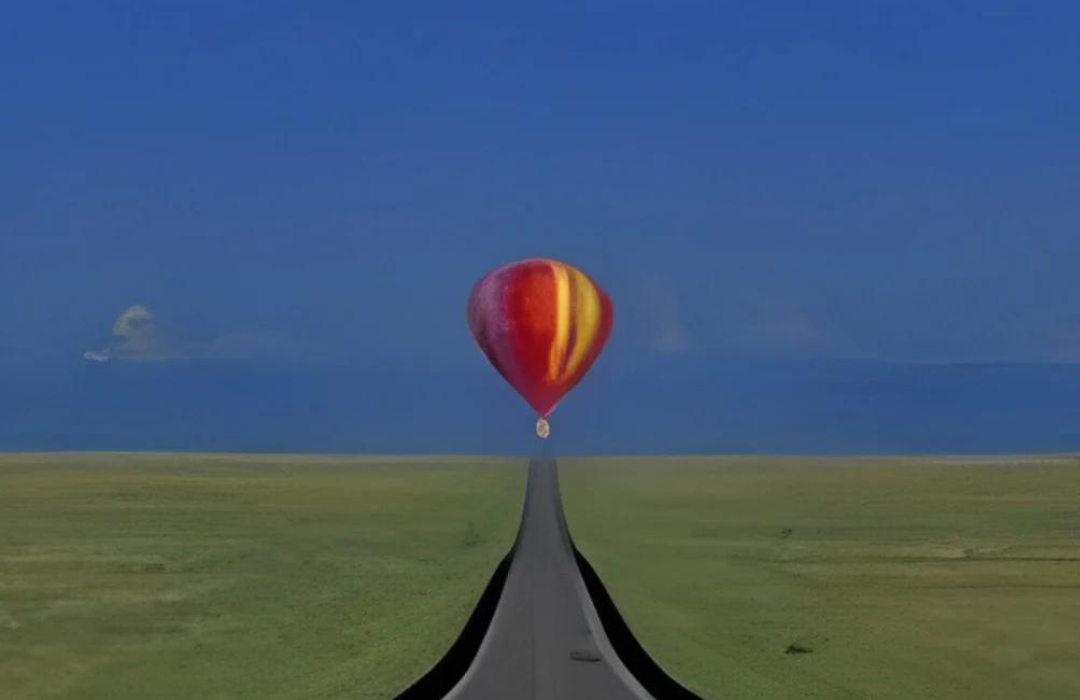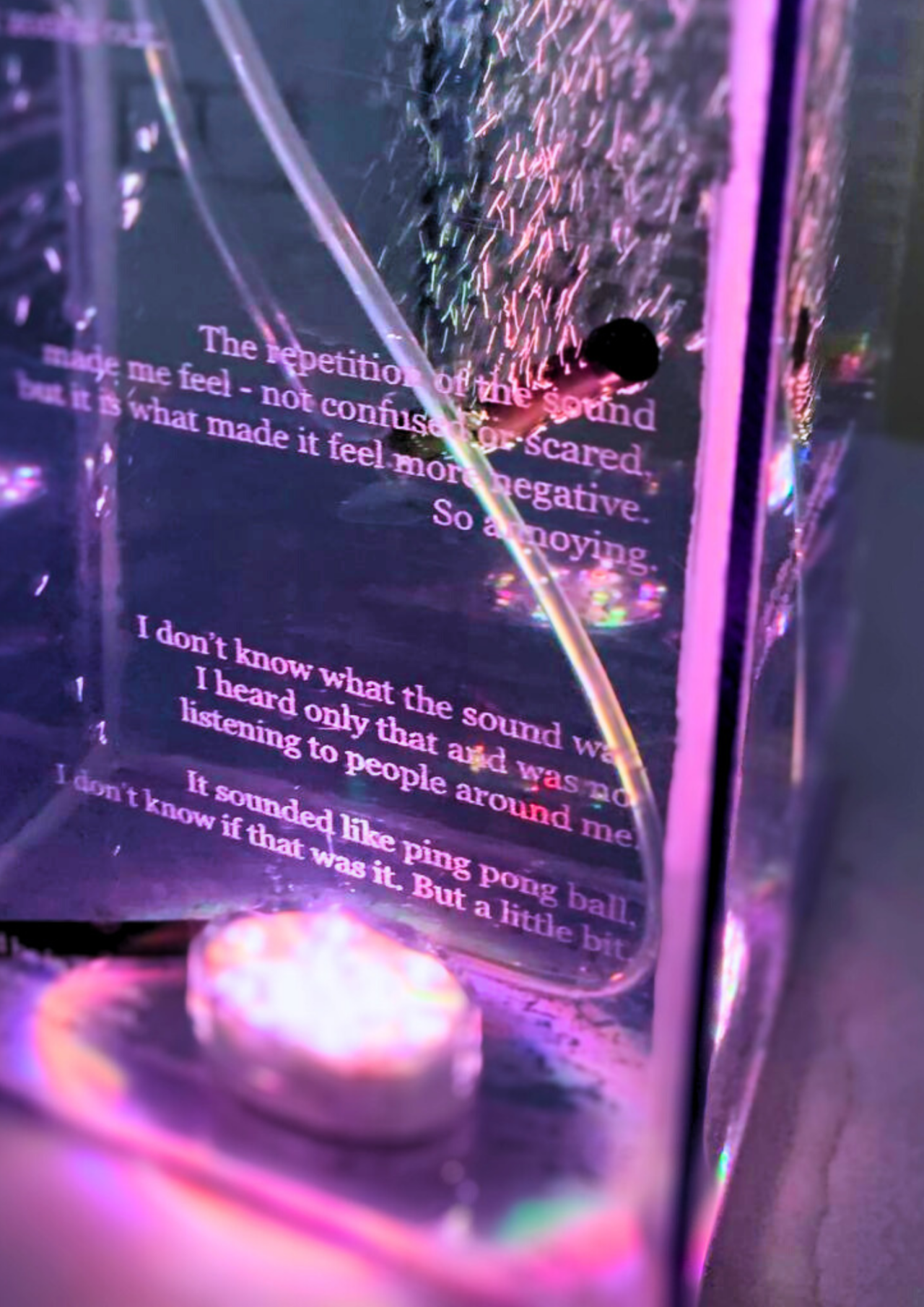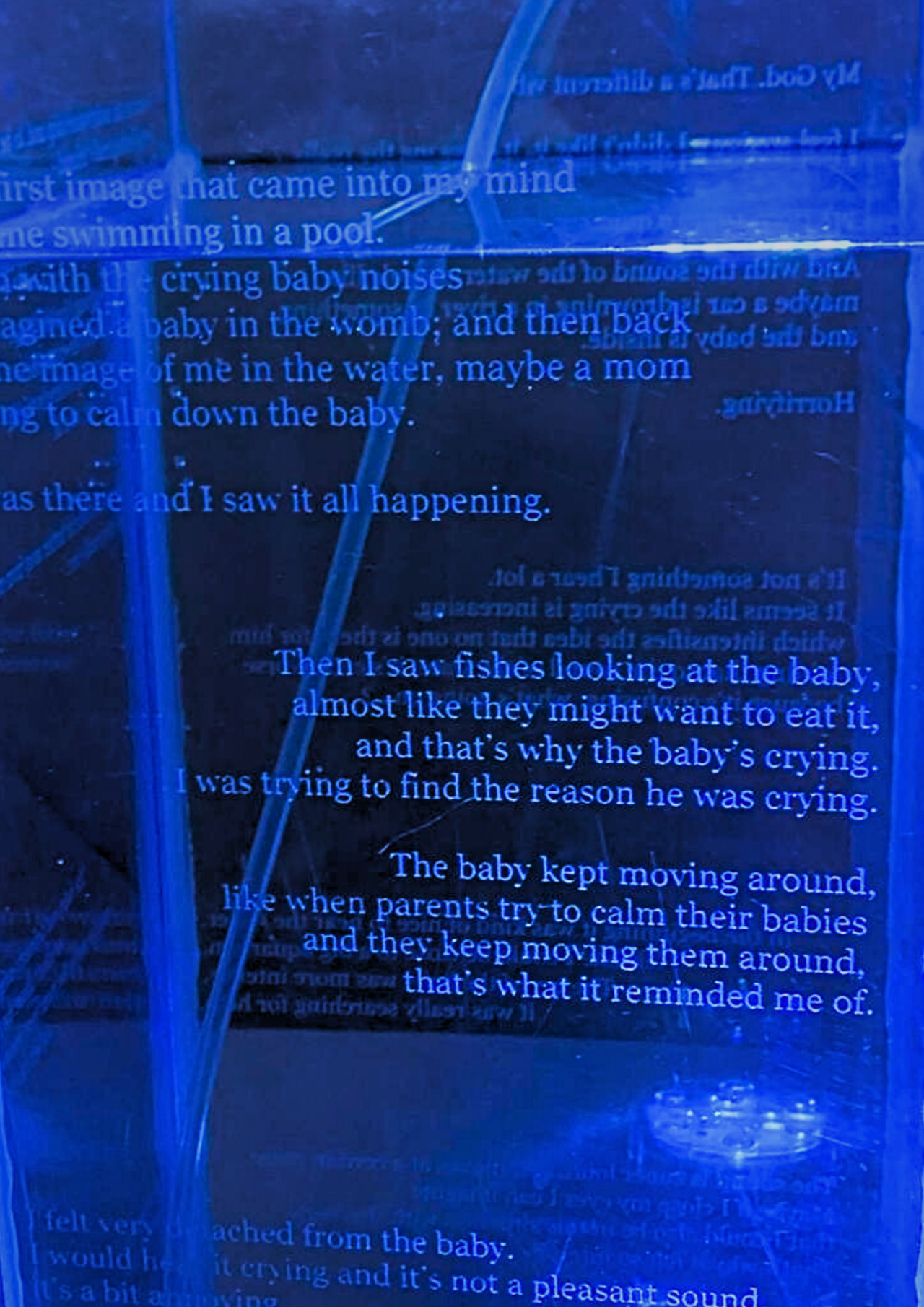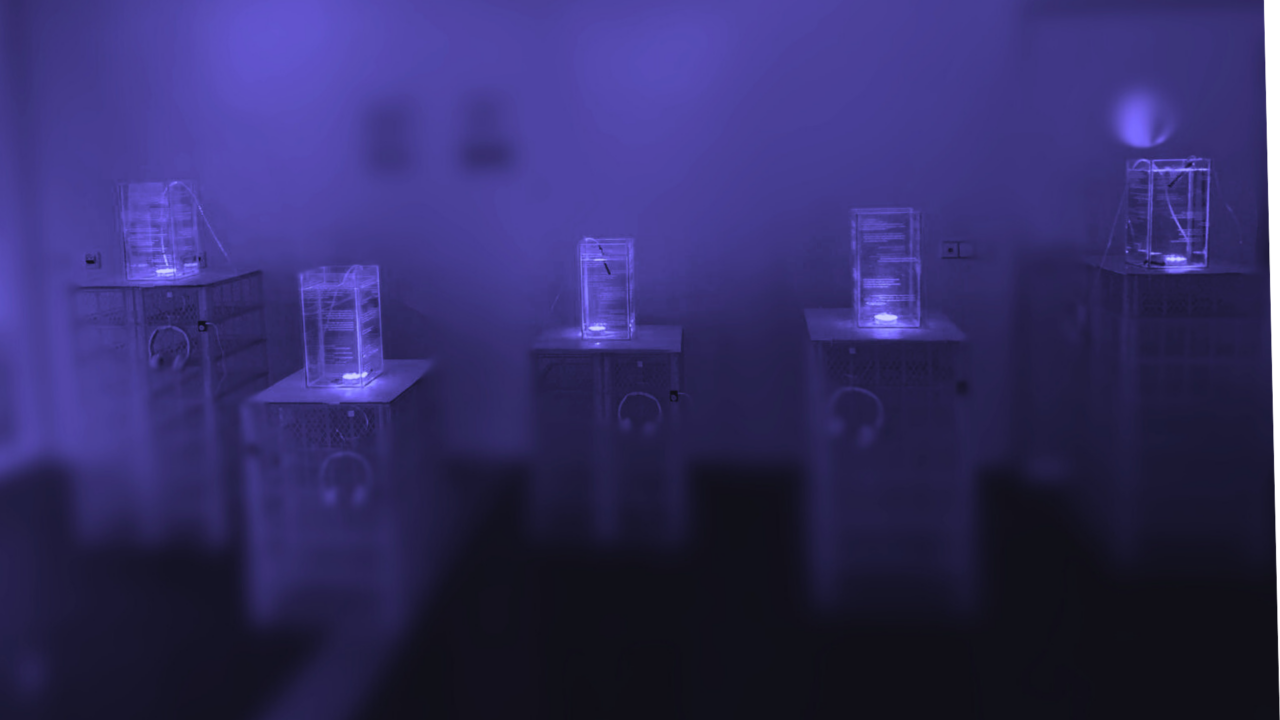Out of Perspective

How is a paradox experienced through the senses?
My project encourages the act of looking at something through different perspectives. It draws a parallel between the perceptual confusion apparent in mental disorders, highlighting the subjective bias of our perception, to ultimately propose dissonance as a method for harmony. Placing doubt in what we consider to be true and acknowledging the narrative of our own perception, being open-minded to doubt and to antithesis gives us the freedom to accept what could also be true.
Perspectivism is the philosophy of the “perhaps”: knowledge is inherently bound to the interpretative perspective of those observing it, there is no objective truth. But those different perspectives can be compared, discussed, mediated.
In Out of Perspective, wear the headphones and walk around the cubes. You are hearing soundscapes which evoke a cognitive dissonance: they are not cohesive imaginative scenarios, the sounds are confusing and odd. What mental imagery does this evoke? Each side of the cube has quotes from different people reacting to this soundscape. What can it tell us about how they see, their perspective, how it differs from yours?
How can you see what someone else sees?


Provoking cognitive dissonance
To “provoke” a cognitive dissonance, the soundscapes combine elements from familiar and cohesive environments (bird noises + wind…) with an intrusive element i.e. one that does not naturally occur in natural or anthropological environment (the noise of a baby crying + sound of the ocean), creating antithetic/paradoxical images.
How do individuals react to opposing imagery and situations? How is a paradox experienced through the senses?

Listen to the soundscapes on: https://soundcloud.com/user-257807816
Project details
- Year
- 2024
- Programme
- Bachelor – Spatial Design
- Practices
- Honours Programme
- Minor
- Visual Culture